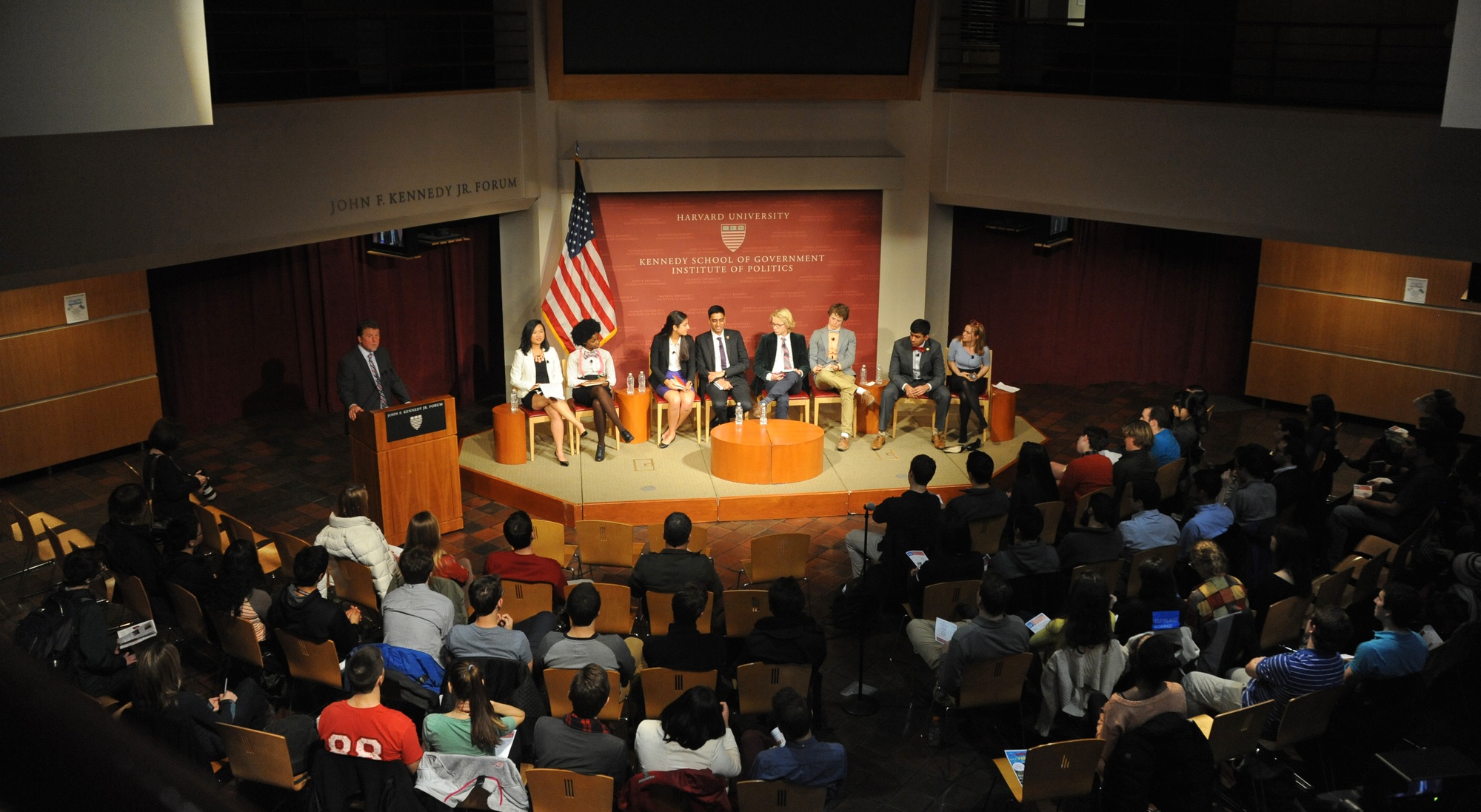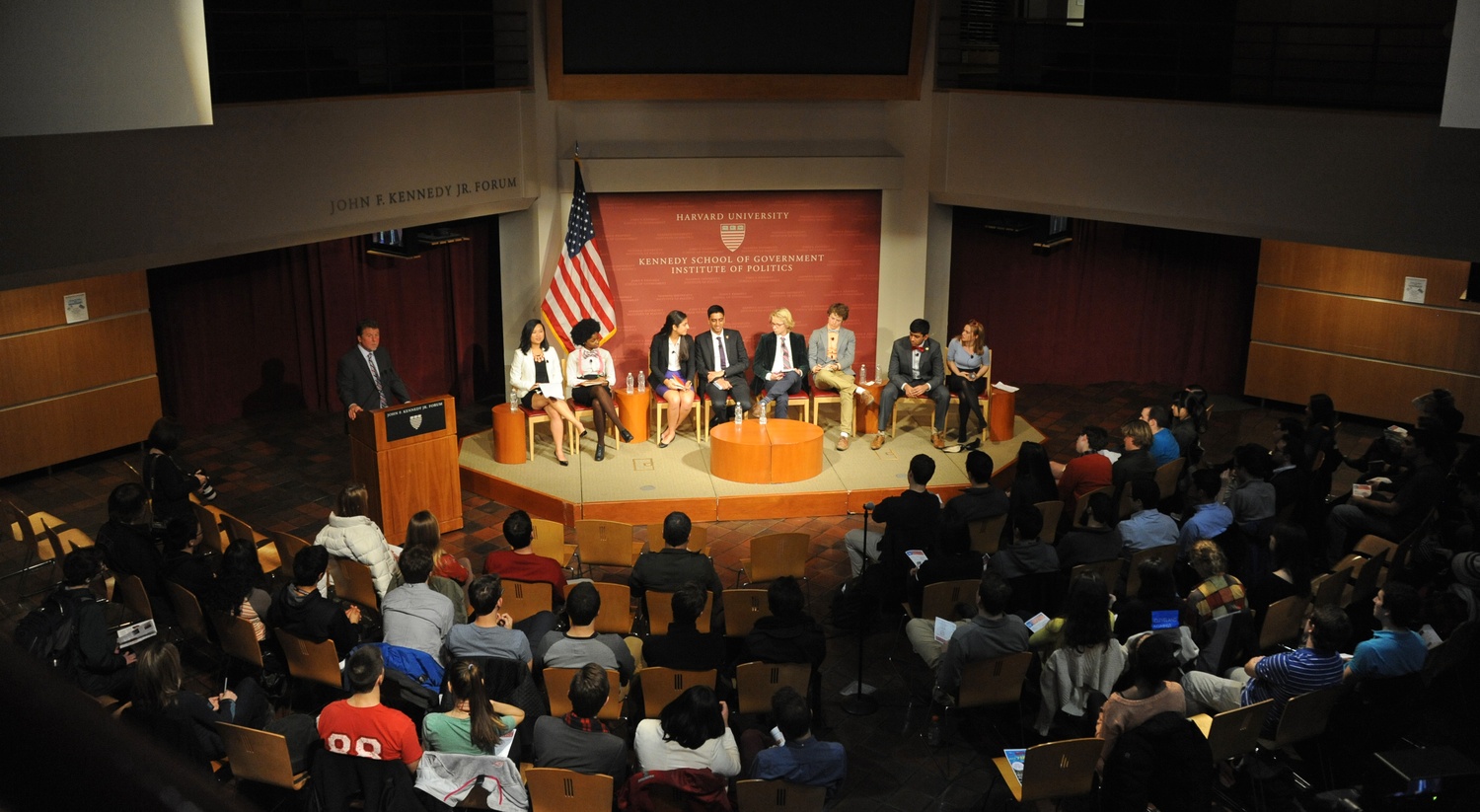
News
When Professors Speak Out, Some Students Stay Quiet. Can Harvard Keep Everyone Talking?

News
Allston Residents, Elected Officials Ask for More Benefits from Harvard’s 10-Year Plan

News
Nobel Laureate Claudia Goldin Warns of Federal Data Misuse at IOP Forum

News
Woman Rescued from Freezing Charles River, Transported to Hospital with Serious Injuries

News
Harvard Researchers Develop New Technology to Map Neural Connections
UC Tickets Bring Different Philosophies to Campaign

With widely varying approaches to club endorsements and campaign overhead, tickets in this year’s Undergraduate Council presidential elections are bringing visibly different philosophies to campaigning.
Two pairs, Ava Nasrollahzadeh ’16 and Dhruv P. Goyal ’16 and Happy Yang ’16 and Faith A. Jackson ’16, have maintained polished websites, with each campaign enlisting 20 or more official campaign staffers. The remaining tickets have intentionally chosen a different path, however, with Meghamsh Kanuparthy ’16 and Ema H. Horvath ’16 favoring a low-budget campaign and Luke R. Heine ’17 and Stephen A. Turban ’17 emphasizing spontaneous interaction with students.
That difference in strategy also comes across in official endorsements. The Nasrollahzadeh-Goyal and Yang-Jackson tickets have secured multiple endorsements from clubs, ranging from political to cultural groups. Meanwhile, Heine and Turban have received no endorsements, and Kanuparthy and Horvath have only garnered The Crimson editorial staff’s endorsement.

“Definitely [club endorsements] are a very important part of the campaign because they have really active member[s], and we stand for issues that these clubs care about,” Yang said, noting that her ticket received endorsements from several clubs, including the Asian American Association, Gay, Lesbian, or Whatever, Harvard Republican Club, and Latinas Unidas.
Nasrollahzadeh and Goyal said they have also received endorsements from many student organizations, including Harvard Financial Analysts Club, the Association of Black Harvard Women, Woodbridge International Society, and the women’s squash team.
Heine and Turban, on the other hand, have no registered campaign organizers, do not host a site, and have sought out no club endorsements.
“This is our biggest advantage. We have an incredibly fast feedback loop where we’re not depending on anyone,” Turban said.
The two said they were focusing more on individual communication with students. The pair printed and distributed several hundred copies of lecture notes for the course Economics 10a: “Principles of Economics” on Monday, with additional information printed at the end informing students how to vote for them.
“Clubs are a weaker voting bloc than people think they are,” Turban said, describing his campaign’s preference for interactions with individual students.
Kanuparthy also questioned the value of courting electoral support from clubs, noting that endorsements may or may not reflect the strength of a campaign's platform.
“Endorsements are a favorites game. If you know the president of a club, you might get the endorsement, which is what it is,” he said, adding that he and Horvath are running a “very low-key” campaign.
The two “very intentional[ly]” decided against hosting a site beyond a Facebook page, because “no one uses it, apart from The Crimson,” Kanuparthy said. He and Horvath have about three registered organizers on their campaign, and have only spent $15 in campaign costs, according to the UC Election Commission.
All tickets are allocated $225 to spend in this year’s elections. Heine and Turban have reported about $200 in current or planned expenditures, including fines. Nasrollahzadeh and Goyal have listed about $150, but said they may not use a large banner that accounts for $93 of their posted expenses. Yang and Jackson have listed $80 in costs.
—Staff writer Noah J. Delwiche can be reached at noah.delwiche@thecrimson.com. Follow him on Twitter @ndelwiche.
Want to keep up with breaking news? Subscribe to our email newsletter.
